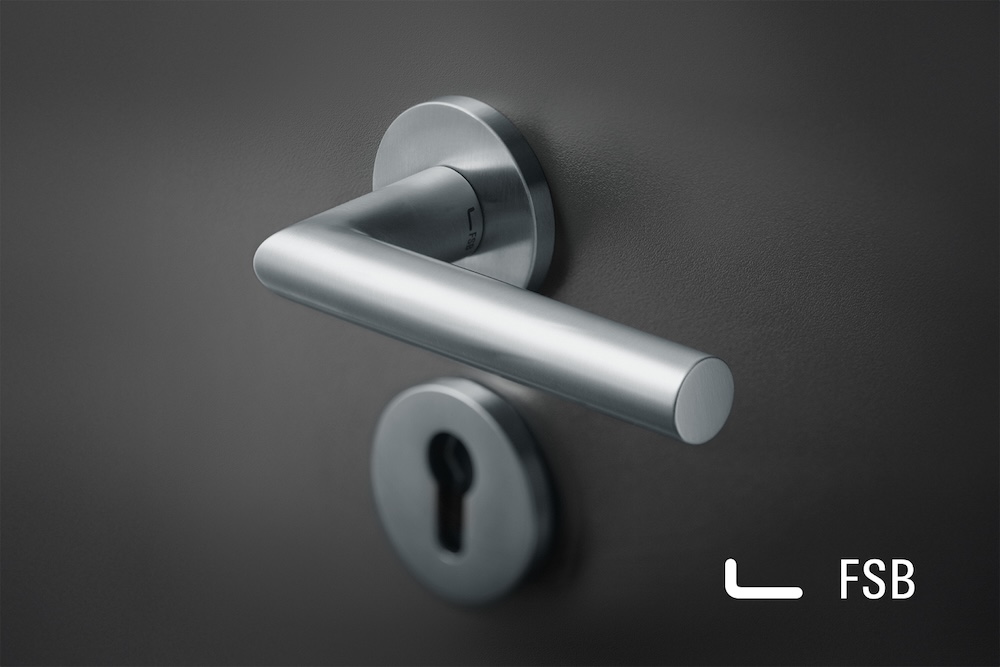
No door handle was copied as frequently as Robert Mallet-Stevens' miter handle from the 1920s. Cologne architect O. M. Ungers took up the iconic design for his Frankfurt buildings and reinterpreted it in stainless steel. With the 1076 model in the 1980s, FSB set a clear example of uncompromising design — particularly in Frankfurt's banking district, where the handle is used in Sir Norman Foster's Commerzbank skyscraper, among others. The “Frankfurt” model is now one of the most successful door handles of recent decades and stands for timeless clarity and architectural style.
For over 100 years, FSB has been manufacturing door handles and window handles exclusively in Germany, at its Brakel site in East Westphalia. The products are produced in continuous series, some by hand, and are available in a wide range of materials and surfaces.
For FSB, sustainable design means using robust materials in a resource-saving manner and ensuring their recyclability. Production is carried out using energy-efficient technologies and without using environmentally harmful substances. The FSB 1076 door handle is an example of the combination of design quality, functionality and sustainability. The certification comprises a total of 55 products from the FSB 1076 stainless steel fittings family and applies to almost all variants and surfaces of this product family.
